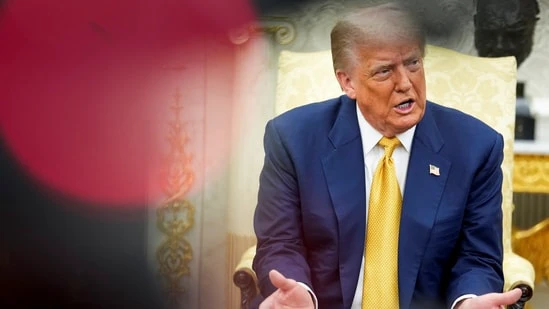An American diplomat on Tuesday told the UN Security Council that the “de-escalations” between India and Pakistan were delivered by the United States.
The assertion follows President Donald Trump’s repeated claims of mediating a ceasefire between the neighbouring countries, something New Delhi has denied time and again.
Acting US Representative Ambassador Dorothy Shea told the UN Security Council on Tuesday that over the past three months, the US leadership has delivered “de-escalations between Israel and Iran, between the Democratic Republic of Congo and Rwanda, and between India and Pakistan”.
Pakistan Deputy Prime Minister and Foreign Minister Ishaq Dar was also presiding over the UNSC meeting.
The diplomat heaped praise on Trump, saying it was under his leadership that the US played a role in “encouraging the parties to reach these resolutions”. The diplomat also called on UN member states involved in disputes or conflicts to follow the example of the countries she listed and resolve issues.
Ties between India and Pakistan nosedived after the April 22 Pahalgam terror attack that killed 26 civilians. A fortnight after that, India launched ‘Operation Sindoor’ on May 7, targeting terrorist infrastructure in Pakistan and Pakistan-occupied Kashmir.
The days that followed saw escalating military tensions between the two neighbouring countries, triggered by Pakistan’s targeting of Indian air bases.
India and Pakistan reached an agreement on cessation of hostilities on May 10, and ever since, Trump has on multiple occasions claimed a hand in brokering the negotiations, even linking it to trade talks.
However, New Delhi has repeatedly denied these claims, clarifying that the deal to stop military action was reached bilaterally, after Pakistan’s Director General of Military Operations (DGMO) called the Indian counterpart.
Pakistan, a non-permanent member of the UNSC, is currently holding events on ‘Promoting International Peace and Security through Multilateralism and the Peaceful Settlement of Disputes’ and on ‘cooperation between the United Nations and regional and sub-regional organisations (Organisation of Islamic Cooperation).’
